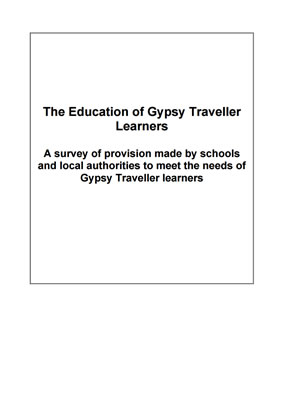
The Education of Gypsy Traveller Learners: A survey of provision made by schools and local authorities to meet the needs of Gypsy Traveller learners, Wales, 2005
Publication type: Report | Author: Other | Themes: Report
This document reports the findings from Estyns survey of provision made by schools and local authorities to meet the needs of Gypsy and Traveller learners. The report also describes aspects of good practice across Wales.
